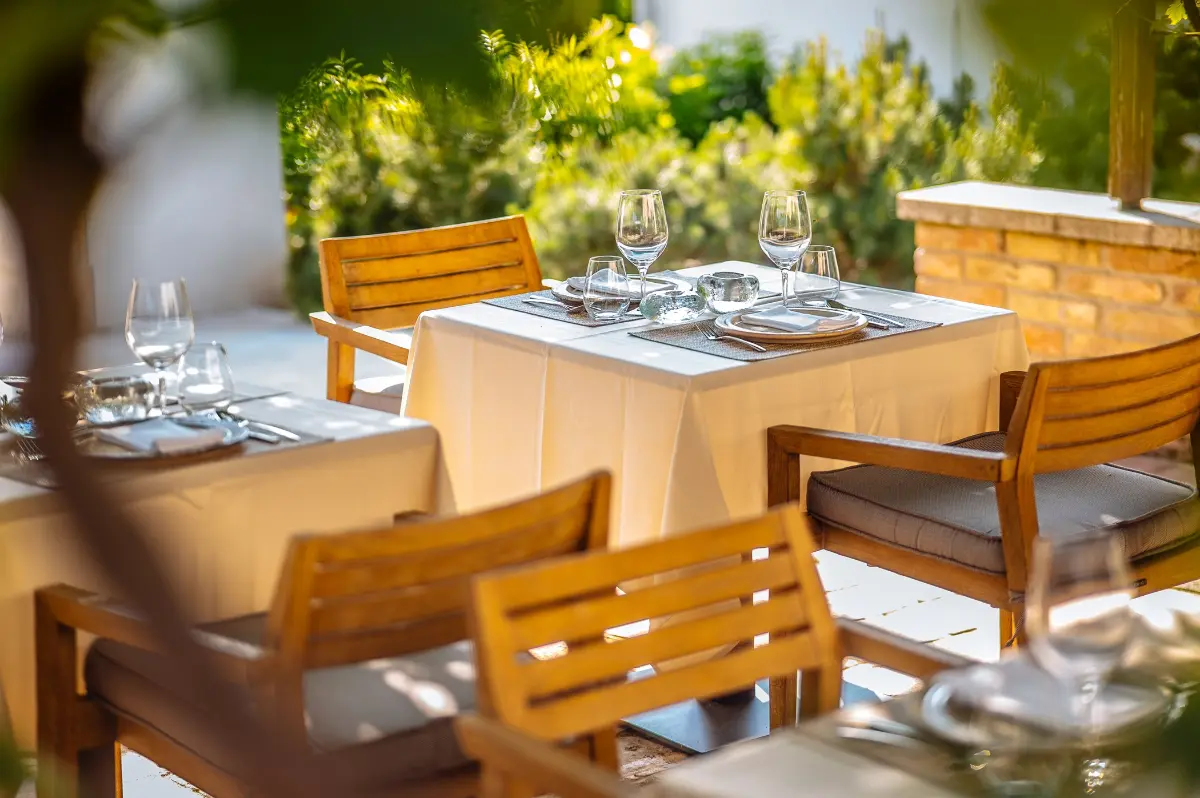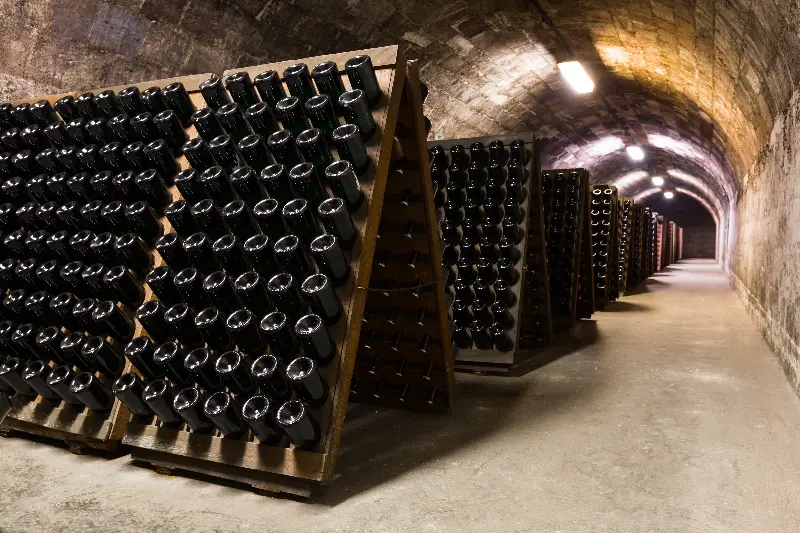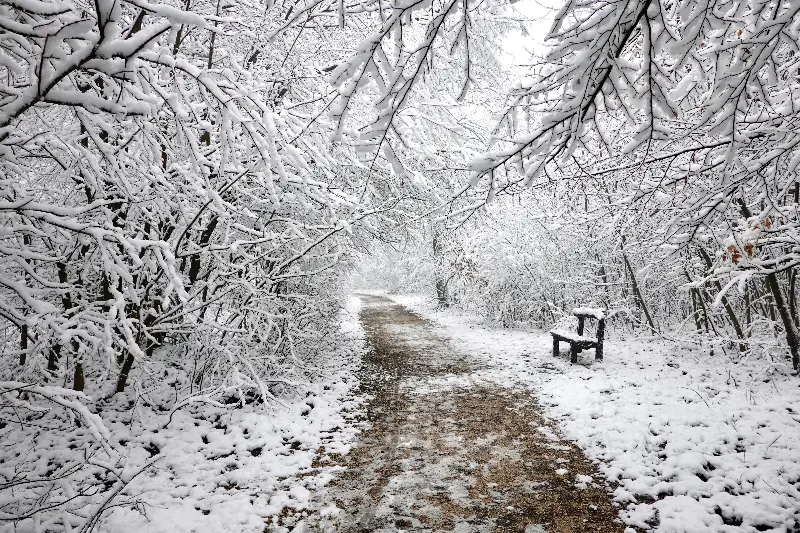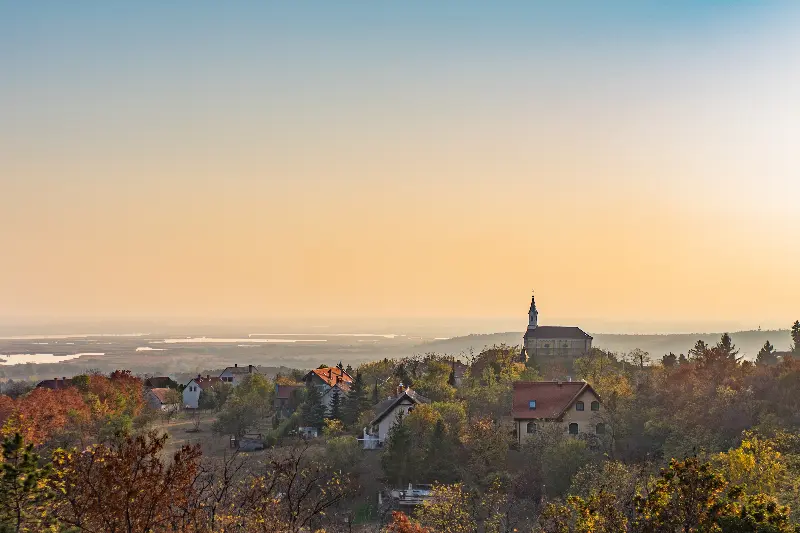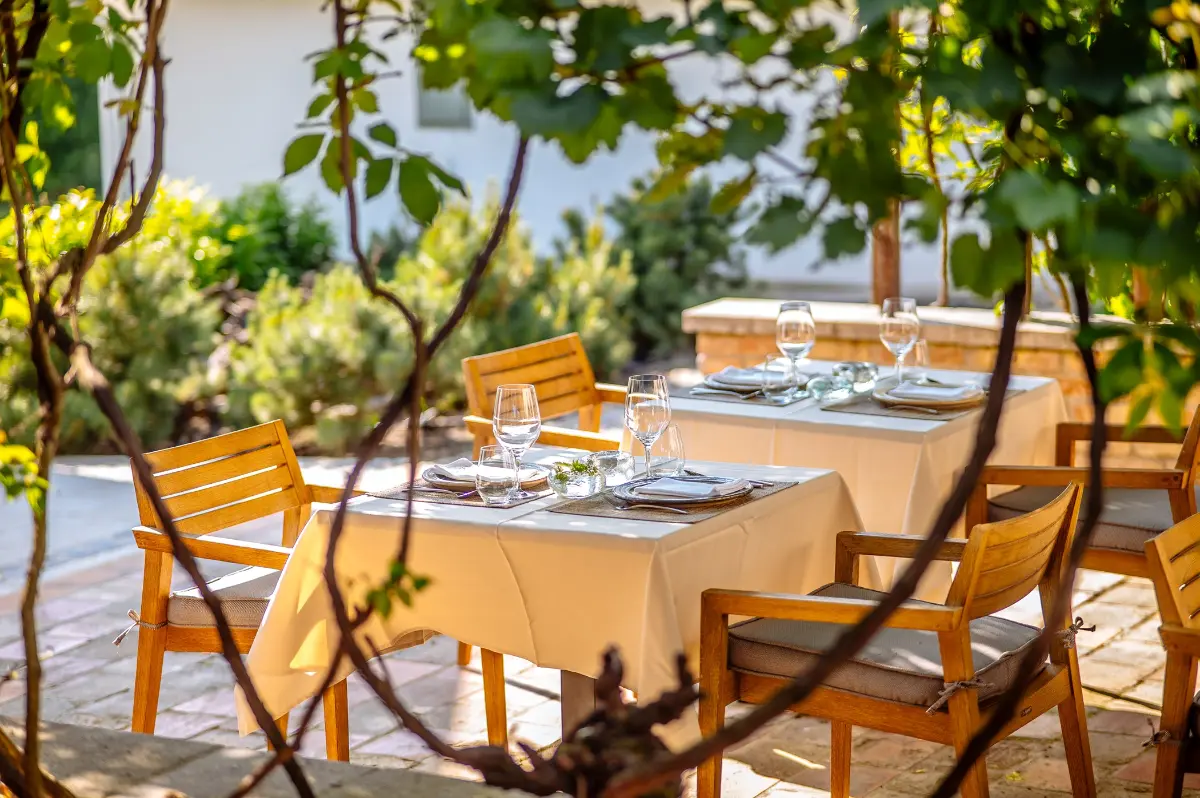
Helyszín címkék:
Acids and words, or magic on the winery row - interview with László Csécsei, the chef of Páskom 1802 Gasztroműhely
Francisck Réka Alíz
Gastronomy lovers could previously take part in periodic cooking courses here, in the former Mosberger cellar, with László Ruprecht, president of the Stylish Rural Restaurants (SVÉT). What and how has changed in the last few months?
From May, the Páskom 1802 Gasztroműhely has permanent opening hours, guests can choose from a narrow, very frequently updated menu. Cooking and professional courses will continue to take place, led by creative chef László Ruprecht.
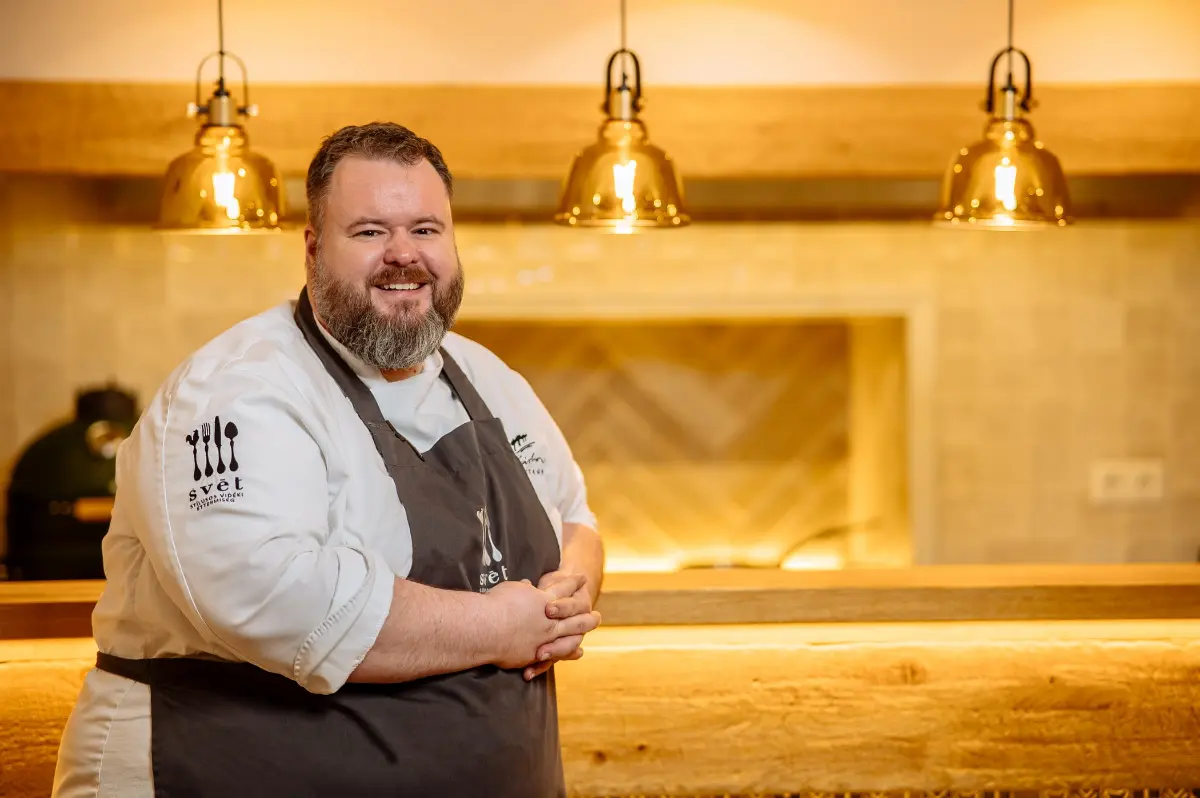
What led you here?
My fate, if you like - only this time it gave its hand in the person of Mihály Mosberger. I worked in very good places, both at home and abroad, but not everything was perfect. I realized that life has meaning when I create value - at one time I planned to implement this as a rabbit breeder, for example, but I missed the atmosphere and hustle and bustle of the kitchen. This is where I found myself. Also as a chef, but there is also room for me to invent and create my own delicious products: this will be the Csécsei Éléstár. I also like the fact that here, as a kind of chef-host, I can follow the guest experience all the way through - especially since I often take the table reservations myself, and I answer the phone. In such cases, I try to find out, based on the tone of voice and phrases, what course the person will choose - and in many cases, no matter how unbelievable, I get it right! They say that the child stays as long as he plays.
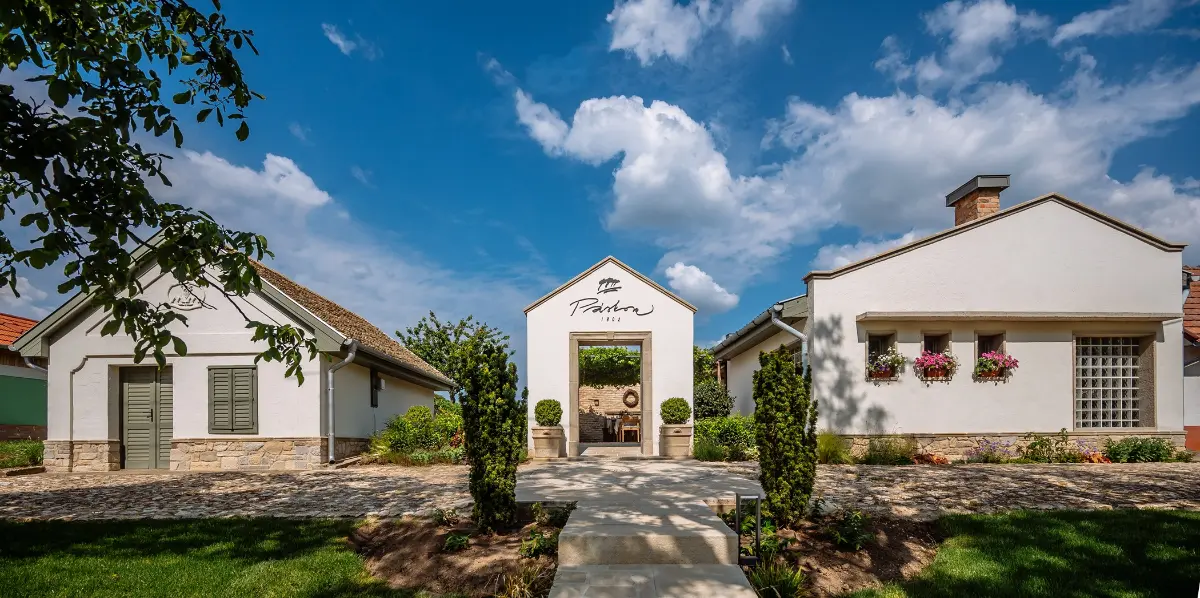
Is playfulness characteristic of Páskom 1802 Gasztroműhely? If you had to describe its credo in a few words, what would you say?
Playfulness is present at a certain level in brainstorming and serving, providing a framework for everything that is placed in front of the guest. Harmony is also extremely important - and here I do not just think of the kitchen, but of the whole milieu, which includes the well-kept grass and the vines, as well as the lavender bushes with which the cellar roof is planted... and also the style of the building, the way we blend into our surroundings, in the company of around 220 neat cellars - at the same time we stand out from it. Of course, I also think about the food we serve and the ingredients. If I really had to summarize it in just a few words, then the proximity to nature and respect for raw materials are what I would highlight. We strive to ensure that quality ingredients from authentic producers appear on the plates, so that each of our dishes can give you a taste of local gastronomy and traditions.
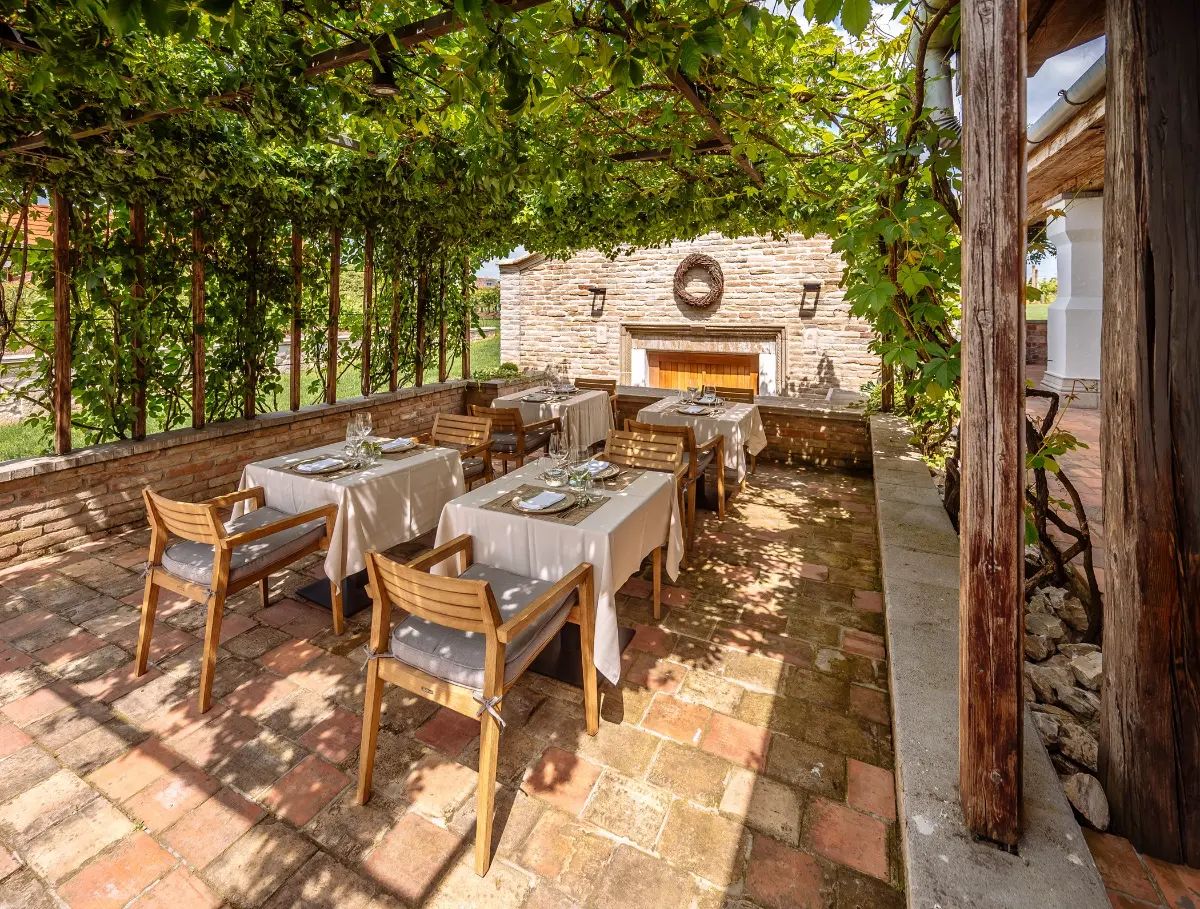
Which suppliers do you work with?
Being from Bodajk myself, I had already managed to map the primary producers and markets in my immediate surroundings before I joined the team here. There is also an amazing number of excellent deposits near Lajoskomárom. Not to go too far: our repairman brings the cock, for example, we get our own seasoned smoked meat from Tibor Gelencsér, the local butcher, but meat also comes from the butcher in Dég, and I even age the ham myself.
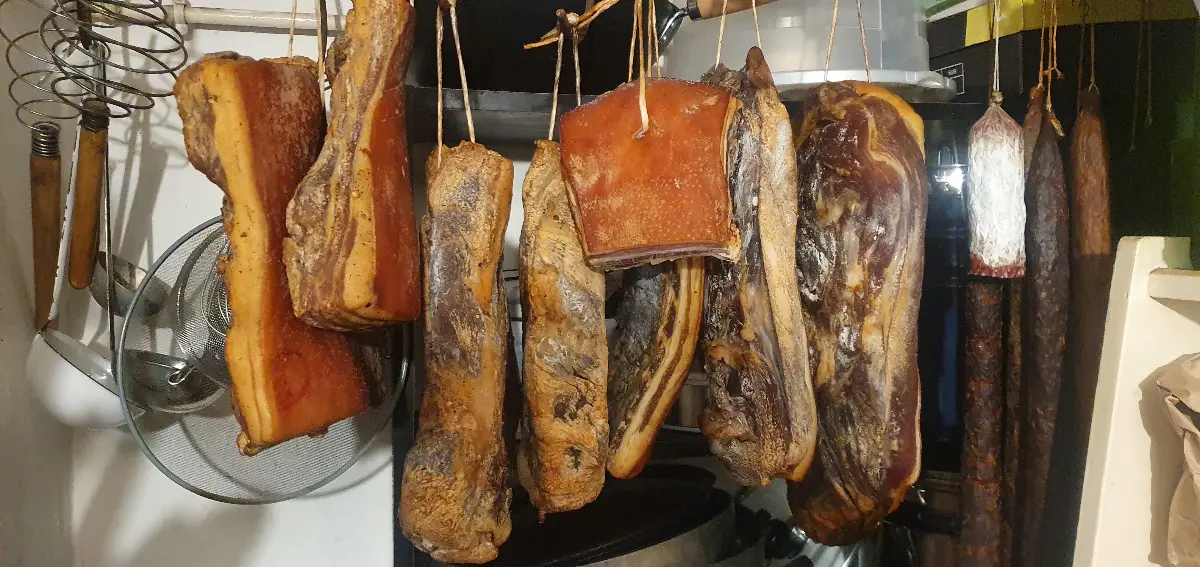
The store-pig (Mangalica) comes from Mátyásdomb, while the game meat comes from Soponya - they also organise a game gastronomic festival every year. We order the microgreens from the Márkus Erika’s, i.e. the Csurgódomb Cheese Kitchen - among other dairy products. We also really like Etyek Hófehér, it comes from the Etyek Goat Cheese Manufactory. We serve it with Tokaj pickled plums. The pickled cabbage is brought from Balinkamecsér, where it is pickled with quince and spices. The pumpkin seed oil comes from the Bíróczki Manufactory, the paprika I use from Fajsz, and the strawberries from Lajosi. You can gather a lot from the nearby Fülöphegy, so to speak. In the morning, whenever I can, I stop at the farmer's market: 20-30 producers are usually there, and what I find at their place is usually included in the menu. This works well with a blackboard: we erase what runs out.
Is there a permanent item on the menu?
Yes, for example, Cordon Bleu, i.e. Mangalica loin in panko crumbs, which I fill with country ham, Trappist cheese from Csurgódomb and serve with brown butter mashed potatoes and citrus salad leaves. Pancakes have also been added to the menu, with a lemon Urda cream, a raisin compote with a touch of Szamorodni, and seasonal fruit in some form. I would also like to add desserts that are a bit tarnished but wonderful, such as golden puff-gnocchi, semolina pudding or cottage-cheese patty, to the menu. At the moment, Somló sponge cake is available as a dessert in a glass, in a flour-free version - to be precise, with walnut flour - and we pour raw cream from a siphon on the side. I try to bring back those dishes that would be a shame to see disappear from restaurants forever: for example, pig's trotter, spleen, beuschel, kidneys.
So, do you mean that a dish is "made with heart and soul" almost literally?
Well, yes. Many people are scared of innards, even though they are very healthy and full of minerals. Here, these dishes get a little update. Right now, there is tripe on the menu, as a chef's recommendation, more precisely fried tripe, which I serve with citrus salad leaves and homemade remoulade.
I noticed that citrus fruits are frequent characters.
“I like acids, they are much needed.”
Maybe that is why I am a fan of Asian flavours, but also of fermentation. I make kimchi at home right now. Our summer kohlrabi cream soup got a new life from kaffir lime juice, but it had a twist: we cooked it in vegetable stock with milk, honey, lemon zest and blended it with olive oil and verjus, then strained it. When serving, we whisked it up, noodles kneaded with ramsons pesto were drizzled in it, and we added salty lemon to it. This soup was a "big hit" at the time of opening, I picked the ramsons for the pesto at the foot of the castle in Dég.
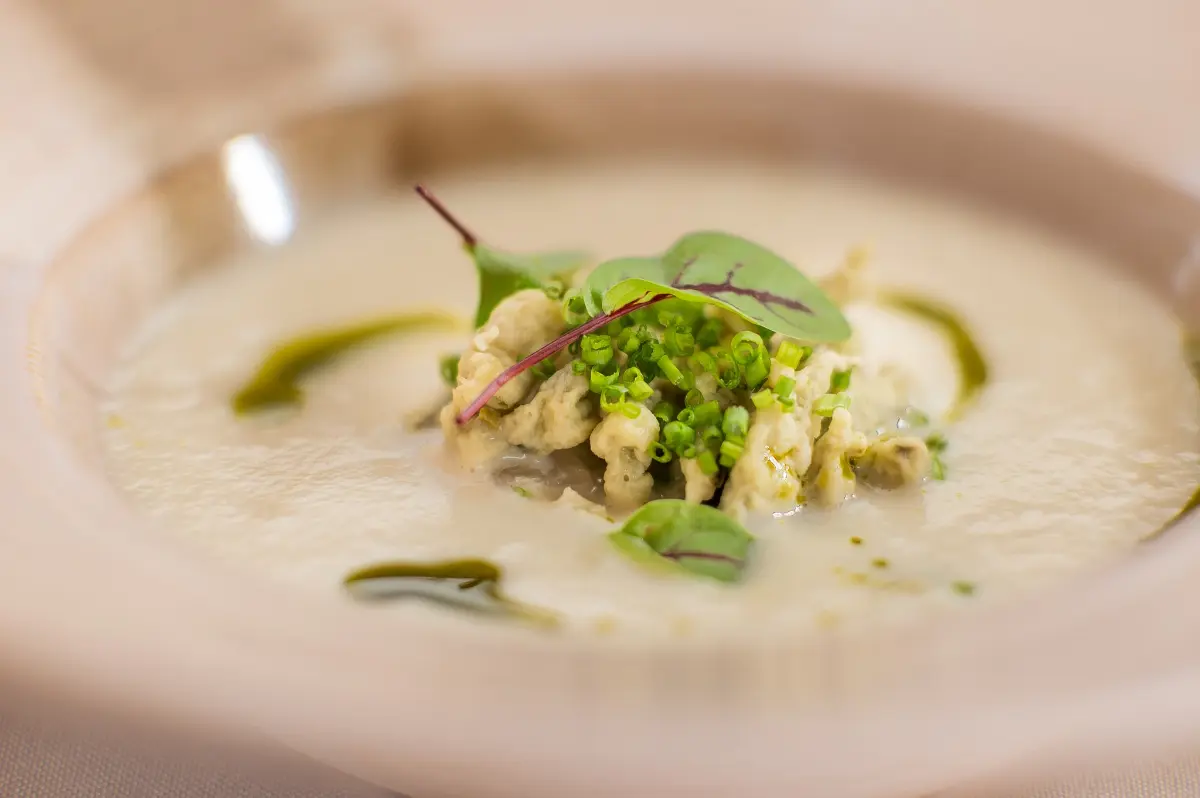
How would you briefly characterize your cooking?
It is decently prepared, but with a little twist, light, yet complex, refined, yet homemade, tasty.
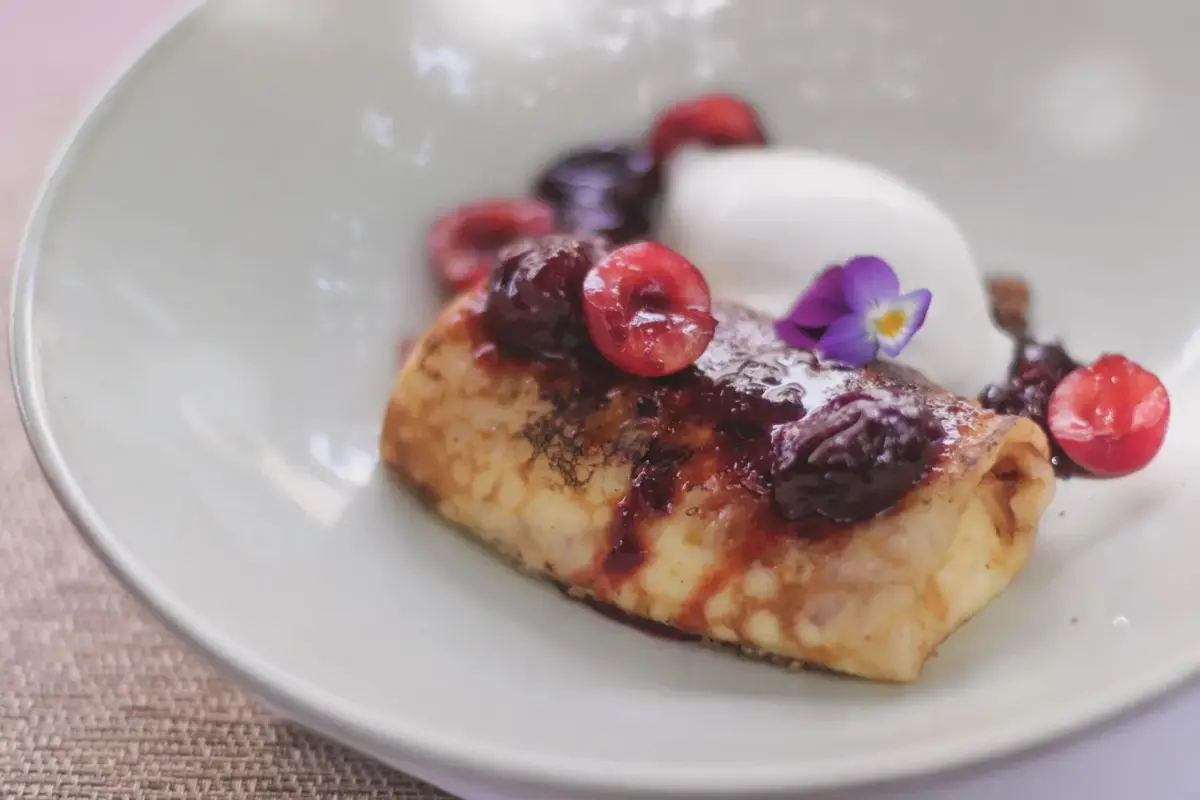
You mentioned the castle in Dég. What else would you recommend for sightseeing in the area?
Lake Balaton is 20 minutes away, Ozora Castle is only half an hour away, and Festetics Castle in Dég is the closest - I recommend exploring the area not in one day, but rather in a long weekend. It is worth keeping an eye on what programmes we have, there will be live music and wine dinners around the time of harvest. In July, for example, we had a barbecue dinner with Szent András beers, from Békésszentandrás, the idea and execution were well received, so we can expect similar co-productions in the future.

